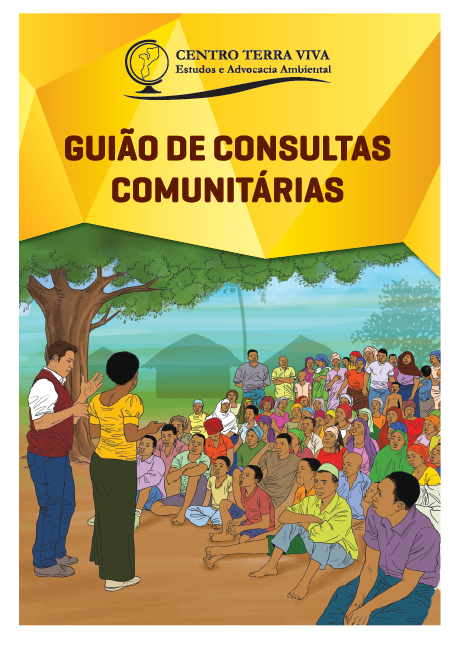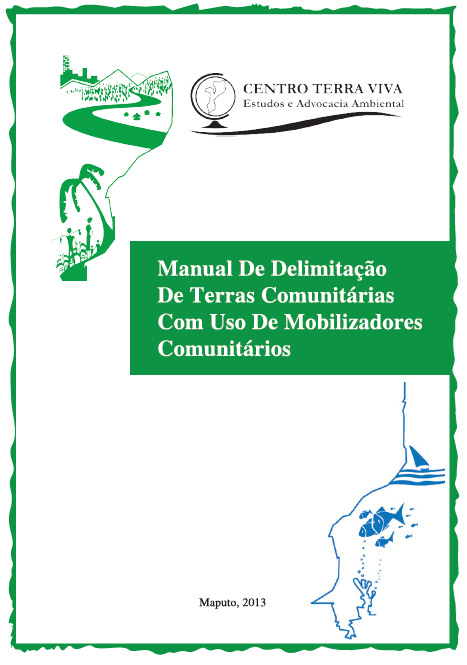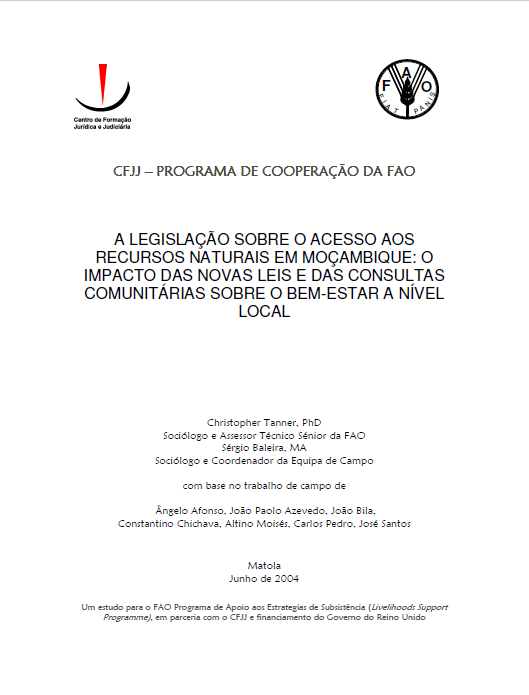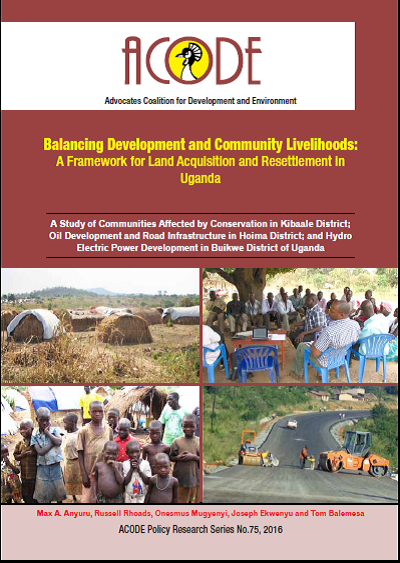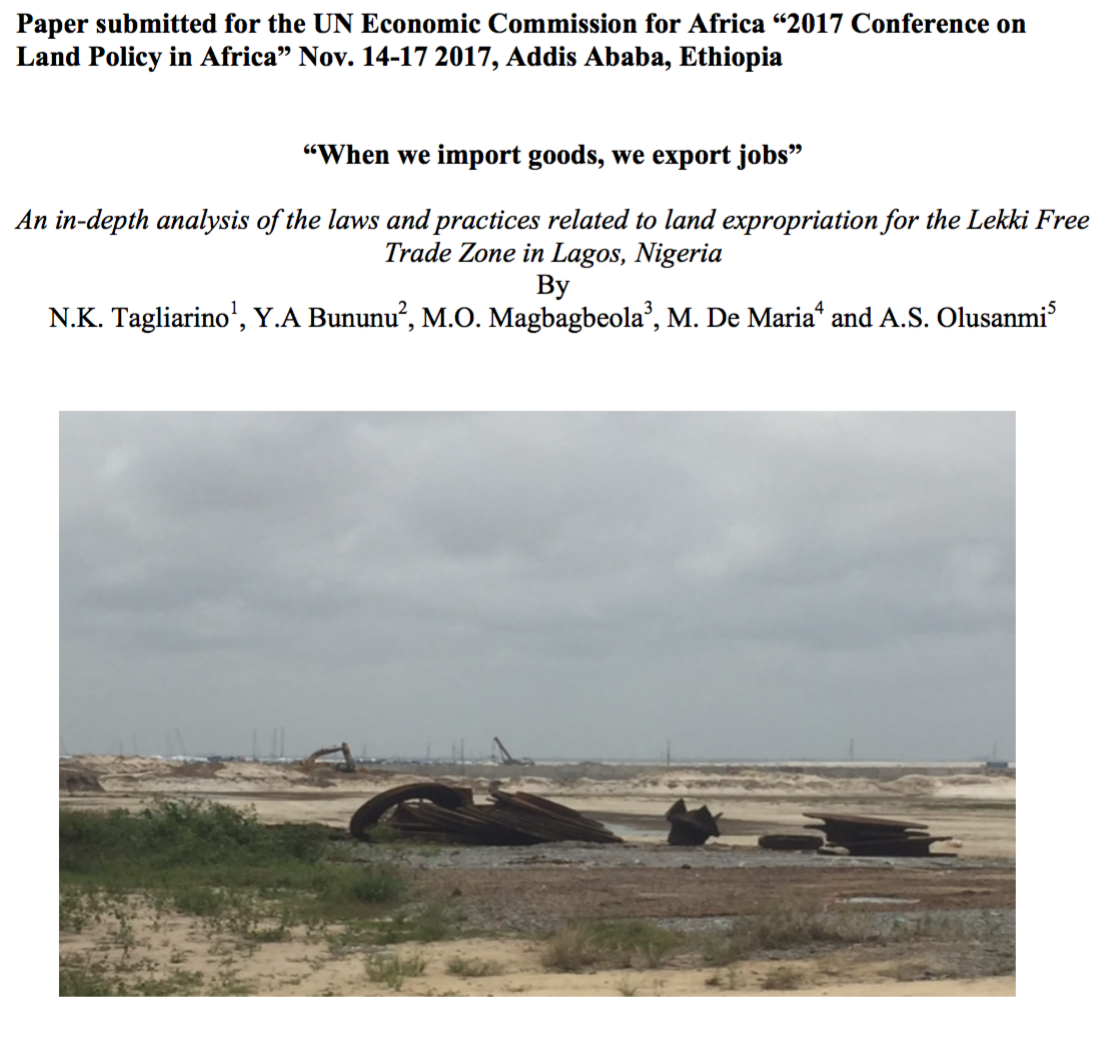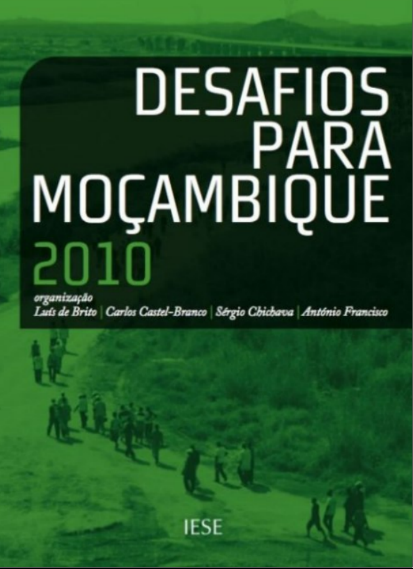Guião de Consultas Comunitárias
Em 2009, o Centro Terra Viva (CTV) publicou o Guião de Consultas Comunitárias, como parte do seu esforço em melhorar a aplicação da legislação sobre terras e outros recursos naturais. O guião resultou de várias pesquisas de campo realizadas pelo CTV e outras organizações que trabalham na área de Terras.

